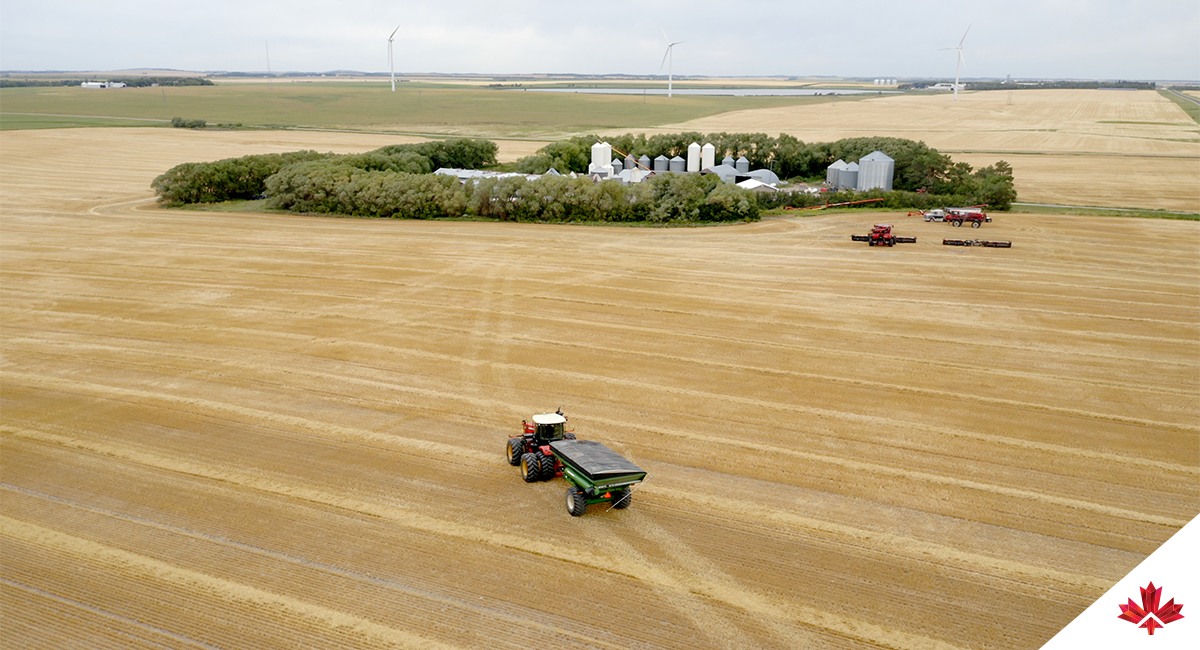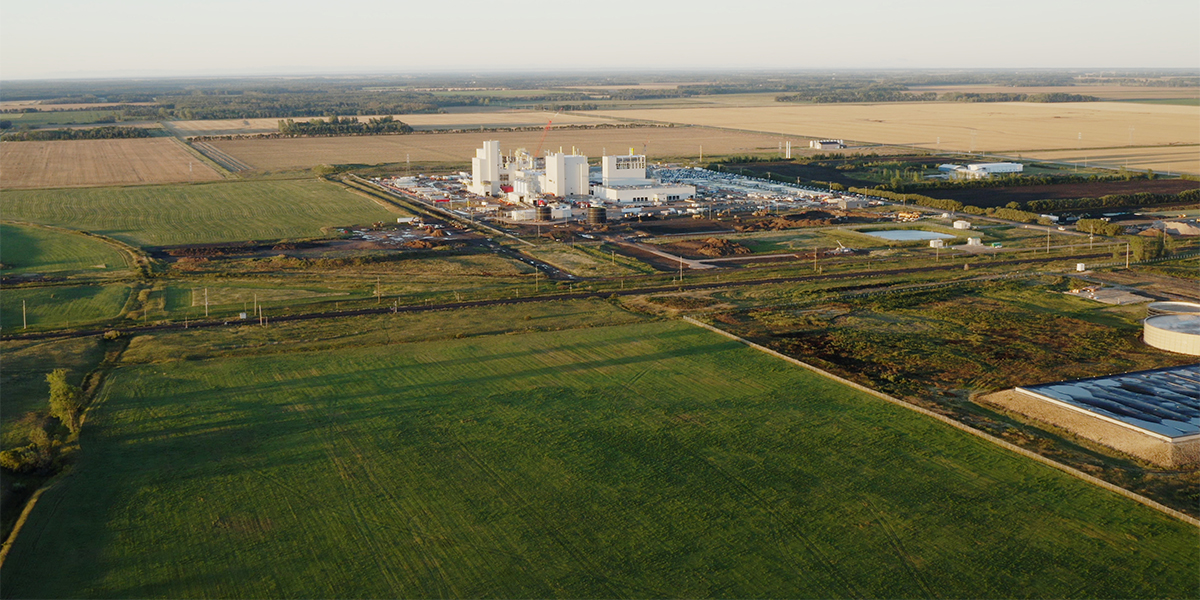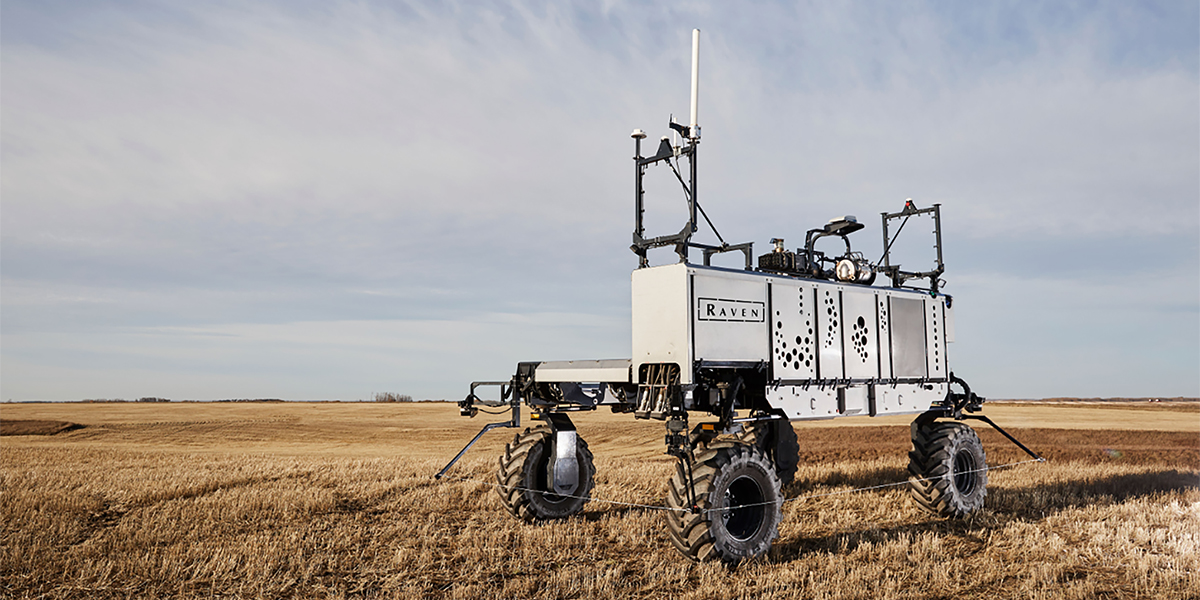Canada’s food supply chains offer a harvest of investment opportunities

Many of Canada’s most iconic images picture agriculture—cattle ranching in the foothills of the Rocky Mountains, wheat fields as far as the eye can see across the prairies, and dairy farms in Eastern Canada. Canada’s food supply chain has always helped to feed the world, and still can as the globe emerges from the COVID-19 pandemic.
Canada’s agricultural production contributes more than $110 billion annually to GDP and the agri-food industry employs 2.3 million Canadians. Globally, Canada is the world’s 5th largest agricultural exporter. With a proven track record of sophisticated international logistics, and trade agreements with every major region of the world, Canada is well-positioned to facilitate the movement of products through the global agribusiness supply chain.
Canada’s integrated food supply chain
The integrated food supply chain is the number 1 agribusiness opportunity for foreign direct investment identified in a 2020 report from KPMG LLP, Advantage Canada: Reshaping Supply Chain Investment Opportunities After COVID-19, commissioned by Invest in Canada. Global food supply chains are seeking to re-build with accessibility and safety as their key cornerstones. Canada’s national farm-to-fork agri-business ecosystem is therefore well-equipped to transform itself.
During the worst of the pandemic, Canadian agri-food supply chains largely avoided shortages and scarcity. Food security was maintained despite a much larger disruption than ever anticipated. Furthermore, Canadian participants in international food supply chains proved to be resilient and adept at working through problems when they arose. As long as Canadian supply chains can retain their existing international competitiveness, they will be able to act upon the opportunities that arise.
International companies operating in Canada have found an environment that is resilient and adaptable. Ceres Global is an agriculture, energy, and supply chain provider with operations across the northern United States and Canada. CEO Robert Day says that Canada is quite efficient when it comes to the movement of goods out to the coasts and beyond, which, combined with abundant crop resources, works in Canada’s favor. Furthermore, Ceres values Canada’s stability and predictability, including a rules-based economy and a strong work ethic embedded into the culture.
In addition to food supply and food security, global buyers and consumers will be demanding a high level of food safety. Having just emerged from a crippling pandemic brought on by an airborne virus, populations will have heightened concerns about the risk of food-borne viruses. Investment in packaging and tracing will be inevitable. The Canadian brand in agriculture and agri-food is one of quality, trust, and safety.
Plant-based proteins are blooming
As consumers consider changing their sources of protein, plant-based proteins are a growing market segment as consumers consider different, one in which Canada is already a recognized world leader. This fast-growing industry continues to attract investment and is supported through the government’s Protein Industries Supercluster Initiative, headquartered in Regina, Saskatchewan.
French company Roquette has invested $600 million in the world’s largest pea-protein facility in Portage la Prairie, Manitoba. Roquette Canada CEO Baumann says Canada’s political stability and ethics are attractive to international investors. Natural resources—land, water, energy—are essential. Modern physical infrastructure to move products and a workforce with the skills to meet the company’s needs were also part of the decision-making process.

Roquette is not the only international company investing in the plant-protein industry in western Canada. In late 2020, U.S.-based Ingredion Incorporated took full ownership of Verdient Foods Inc. from Oscar-winning film director James Cameron and his wife Suzi Amis Cameron. Once construction is complete on a new adjacent site in Vanscoy, Saskatchewan, the company will have two facilities that produce specialty pulse-based protein ingredients. Also in Saskatchewan, Singapore-based Agrocorp, completed work in 2019 on a pea protein extraction plant project in the town of Cut Knife.
The momentum for plant-based protein investment in Canada got a further boost in March 2021. Lovingly Made Ingredients, the ingredient manufacturing division of U.K.-based The Meatless Farm, began production at its Calgary, Alberta facility. The company is working with contracted farmers to support Alberta’s agriculture sector and sustainable farming practices.
Ag-tech: agriculture with finer precision
Whether in the field or in the lab, innovation and technological advancement are crucial to the success of agribusiness in Canada. Precision agriculture allows operators to produce more while using fewer resources, and it will be vital to increasing crop yields to supply a global population estimated to approach 10 billion by 2050.
AGT Foods is a Canadian-based company in Regina, Saskatchewan. With more than 40 facilities around the world and sales in 120 countries, it is one of the largest suppliers of value-added pulses, staple foods and ingredients in the world.
CEO Murad Al-Katib says that Canada has a network of R&D and early adoption of technology that drives innovation in the sector. Innovation includes broadband investments to allow operators in rural areas to digitize the sector. Canada’s opportunity, he says, is to combine global demand for protein and commodities with value-added products, technology and innovation.
Raven Industries Inc. is one international firm that is making a commitment to precision agriculture in Canada. In 2020, the company—headquartered in South Dakota—announced that it will open a new Canadian headquarters near Regina for Raven Applied Technologies. The facility will have capacity for machine production and five acres for testing, making it the company’s centre of precision and autonomous agriculture activities in Canada.

Investments such as those described above, combined with first rate agricultural research activities and a farm-to-fork system for quality and food safety, illustrate that there is no better market than Canada for agri-food operations. With the global population expected to reach 10 billion people by 2050, Canada is the location from which to feed the world.
If you are a global company looking to invest in Canada, contact us to discuss your agribusiness or supply chain project.